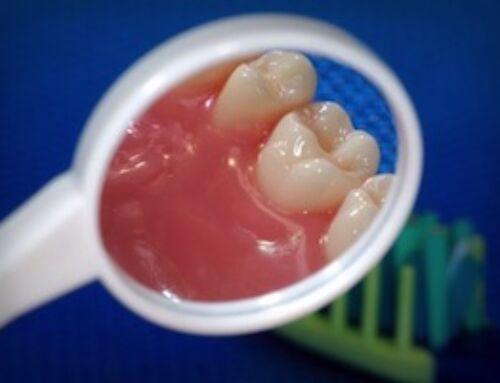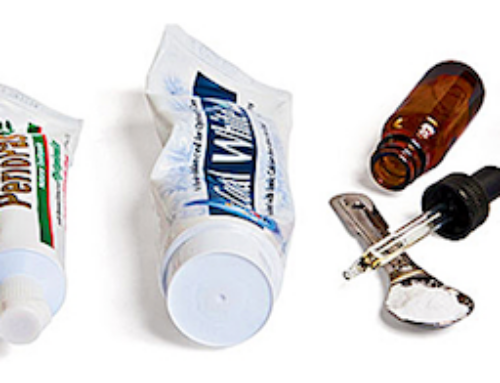 Listening to your mouth…here’s how to do it and why you should.
Listening to your mouth…here’s how to do it and why you should.
1. Brushing your entire mouth.
Brushing your teeth only accounts for 5% of the surface area of the mouth. 95% of your mouth is everything but your teeth. Brush the front of the teeth, and back of the teeth.
Also brush the top, sides and bottom of the tongue. Brush the insides of the cheeks, roof of the mouth (palate), floor of the mouth and lips.
2. Brushing softly.
Many people think that brushing harder gets their teeth cleaner. In fact, brushing hard has the opposite effect. It causes trauma to the teeth, whereby the tooth wears away and forms a notch that looks like it was hit with an ax (called an abfraction). Ouch!! Also, the gum tissues shrink and pull away (or recede) from the tooth. The shrinkage opens pores, and that attracts more germs. The cycle continues until you lose your teeth. Brush softly in small circles to remove the harmful germs.
3. Brush after every snack, drink and meal.
Germs grow at the rate of 20 billion per hour in your mouth. Yuk!!! Ever get that “bad taste” between brushings? You may want to consider brushing 5-7 times a day to reduce the bacterial counts in your mouth. This will result in fewer problems.
4. Floss. Floss. Floss.
Avoiding the “tooth lasso” or floss may result in periodontal disease and cavities. Bacterial colonies called plaque can build up between your teeth. Food collects there too. Acids are secreted that begin destruction of your teeth, gums and bone. This damage is permanent.
5. Flossing every tooth.
There is a natural space between teeth. When you floss, make sure you hold the floss against one tooth and then the other tooth. Many people just stick the floss through the teeth, but avoid both sides. Flossing one side, results in not effectively cleaning the areas and disease can grow. The disease from the mouth can also spread through the body causing serious diseases.
6. Rinsing with mouthwash.
When you rinse with mouthwash, many people think this is a substitute for brushing. The rinse delivers chemicals that kill germs, but it does not remove the harmful germs from the teeth. There is no substitute for brushing.
7. Drinking fluids other than water.
Now, I’m not saying don’t ever drink fluids other than water; however, you may want to consider this thought. Beverages such as juices, flavored waters, tonic water, tea, coffee, soda, and sports drinks — all may contain acids that can destroy your teeth, gums and bones within 7 minutes. I suggest that you limit swallowing these beverages with meals. Brushing your mouth immediately after consumption stops the damage from acids. Alternatively, you can rinse with water for 7 seconds to neutralize the acids.
8. Your mouth as a beacon of health.
When your mouth hurts, something is wrong! And many people avoid the signals, waiting too long to seek dental health care. Many people avoid letting their dentist know that something is different with their mouth, even during treatment with dental implants. If your gum tissues change colors on your lips, cheeks, tongue, around the teeth — call your dentist to evaluate the reason for changes. It may be caused by medications, dietary changes, dental infections, or systemic infections such as heart disease, diabetes or cancer.
The mouth has many nerve fibers that let us know when something is wrong. Listen to it, and suffering may be reduced in the mouth and the wallet!
9. Medical problems.
None of us likes to hear that we have developed a medical condition. Is there something “wrong” with me? Am I broken? You may be weak, damaged or hopeless. Heart disease, stroke, lung disease, diabetes, cancer, Alzheimer’s — all may affect our psyche. You may feel depressed about the bad news. The last thing you want to do is go to the dentist! However, I suggest that you do so immediately. Over the last 6 months, I have seen many patients that had heart attacks, pneumonia, diabetes, vision problems, acid reflux disease, H. pylori infections, and cancer. I looked inside of their mouths and was shocked. All of them had periodontal disease (gum disease). Periodontal disease is caused by bacteria that reside beneath the gums. These germs are nasty. They secrete a chemical called endotoxin that causes the body to attack itself – that’s bad! Therefore, I recommend that you visit with your dentist as soon as practical to ensure that gum disease and cavities are not present. Your quality of life may improve by visiting with the dentist.
All the best to your success-
Dr. Joe Kravitz
Prosthodontist, Author and Speaker
Maryland, Washington DC, Virginia




